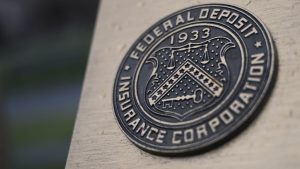Earlier this month headlines took the papers with the first issue of an unexplained wealth order for a woman who had spent a shocking £16 million at one of the UK’s most prestigious and recognised high-end stores: Harrods. This bill is only a fraction of the money Zamira Hajiyeva has spent over the past few years, and with growing concerns of money laundering and bouts of corrupt money choking the financial atmosphere, we hear from Michael Harris, Director of Financial Crime Compliance at LexisNexis® Risk Solutions who speaks on this matter and how unexplained wealth orders may combat financial crime.
Unexplained Wealth Orders (UWOs) are a relatively new power granted to law enforcement by the government under the Proceeds of Crime Act 2002 (POCA) and the Criminal Finances Act. The legislation requires a person who is reasonably suspected of being involved in serious crime to explain the nature and extent of their interest in particular assets, and to disclose the sources of their wealth.
Unexplained Wealth Orders are part of a new arsenal of tools designed to stem the flow of laundered money passing through the UK.
Although this tool has been at the National Crime Agency’s (NCA) disposal since 31st January 2018, UWOs have recently been thrust into the spotlight due to the fact that the UK’s first ever UWO has been enacted against Zamira Hajiyeva. The Azerbaijani national spent over £50 million in the UK over the course of a decade, including the purchase of a Berkshire golf club, a jet and a £16 million spending spree in Harrods, the equivalent of more than £4,000 a day. Mrs. Hajiyeva will now have to explain the source of her wealth for buying the properties, and if she cannot, they will presumed to be the proceeds of unlawful conduct and will become open to civil recovery proceedings.
It is the first time that we have seen one of the so-called ‘super-powers’ from the Criminal Finances Act being used, and the industry will be watching with baited breath to see if a flood of further UWOs will be used by law enforcement in other cases to compel disclosure of funds and their legitimacy.
According to the International Centre for Asset Recovery’s 2018 Basel AML Index, there has been “little measurable progress in countering money laundering” globally
The case for using UWOs
Unexplained Wealth Orders are part of a new arsenal of tools designed to stem the flow of laundered money passing through the UK. Whilst undoubtedly a crucial part of law enforcement in this area, as a new power, there needs to be absolute certainty and confidence that they will be an effective measure against financial crime. In legal circles, UWOs are still a slightly controversial measure as proof of illicit wealth sources is not required by law enforcement to challenge politically exposed persons (PEPs) about the sources of their wealth.
According to the International Centre for Asset Recovery’s 2018 Basel AML Index, there has been “little measurable progress in countering money laundering” globally, with 64% of the 129 countries listed having a score over five, which is defined as a ‘significant risk of money laundering and terrorist financing’ occurring.
Across the board, effectiveness in stemming these dirty money flows is lagging behind technical compliance, and there is a low level of effective enforcement of anti-money laundering and counter-terrorist financing measures. Indeed, the Index also showed that 47% of countries assessed have a low level of effectiveness in investigating and prosecuting money laundering offences.
Law enforcement agencies globally are struggling with resource and therefore enforcement of regulations. The NCA is ahead of the game in this matter, and it is why we’re expecting to see UWOs be more extensively used in the future, but in the interim, it’s up to the financial services community to put in place far more rigorous anti-money laundering controls. Unless the right checks and balances are in place, dirty money can cross a border and be converted into other currencies or assets before anyone realises that a financial crime has been committed.
UWOs operate at the highest judicial level, with the NCA working alongside the High Court should the individual subject to the order not be able to prove a legitimate source of their wealth or property.
The Hajiyeva order
In the case of Mrs. Hajiyeva and her husband, there is allegedly a discrepancy between the apparent joint income of the family and their levels of spending, particularly when it came to the ownership and purchase of top-end assets such as real estate. This was the basis of the NCA filing the first UWO.
During the purchase of any real estate, commercial or otherwise, there should always be an appropriate level of due diligence conducted by both the estate agents and any solicitors involved in the process to ensure that the buyer’s sources of wealth are valid. In the case of Mrs. Hajiyeva’s golf club purchase, for example, questions are now being raised about whether adequate checks were conducted and indeed, how effectively these checks are being implemented more broadly in the purchase of premium real estate.
What’s next?
UWOs operate at the highest judicial level, with the NCA working alongside the High Court should the individual subject to the order not be able to prove a legitimate source of their wealth or property. There are further tools at law enforcement’s disposal at a more local level, however. Freezing orders, also called asset freezing orders, can be used by local courts at an operational level to freeze suspected high value assets very quickly.
There must be higher levels of information sharing between financial institutions, law enforcement agencies and regulators to learn from each other and share best practice, to up the ante in the fight against financial crime.
In addition to going after financial criminals directly, the government has made clear that it will also target those who may be enabling this type of crime, including lawyers, accountants and other intermediaries, so called ‘professional enablers’.
Using a combination of freezing orders and UWOs, it is likely that there will be a further clampdown on top-end assets, such as real estate, where money flows are from high-risk countries. Russian money is one of the biggest concerns here, but there are other areas such as Azerbaijan, the Middle East and areas of Africa which the Basel AML Index has noted to be of equally high, if not higher risk.
Whilst spotting red flags and ‘following the money’ should still be the basis of any due diligence when looking at suspicious wealth sources, the challenge is increasingly coming from new forms of money laundering schemes that have not been seen before. To combat this, there must be higher levels of information sharing between financial institutions, law enforcement agencies and regulators to learn from each other and share best practice, to up the ante in the fight against financial crime.
Michael Harris
Director of Financial Crime Compliance at LexisNexis® Risk Solutions
Michael is Director of Financial Crime Compliance and AML subject matter expert. He leads a team of sales specialists in the Financial Services Industry who provide expert guidance on entity identity verification, client data management, KYC/AML screening solutions and enhanced due diligence. By drawing on the global suite of products offered by LexisNexis Risk Solutions in Data, Analytics and Technology the team create innovative solutions that support the entire client journey in onboarding and ongoing monitoring of AML Risk.




















